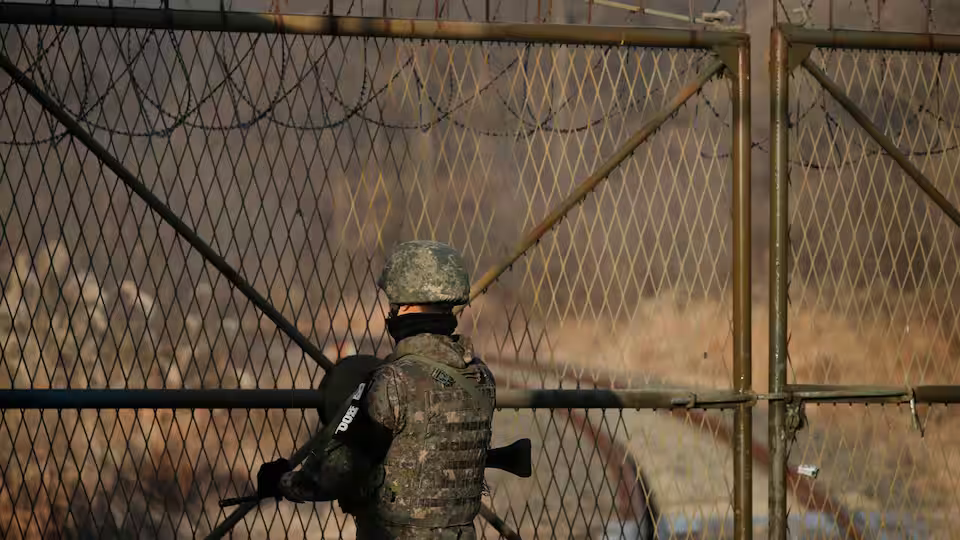
In a tense encounter along one of the world's most heavily fortified borders, South Korea's military fired warning shots after North Korean soldiers crossed the Military Demarcation Line (MDL) on Tuesday. The incursion occurred in the demilitarized zone (DMZ), a buffer area established to prevent hostilities between the two Koreas. According to South Korea's Joint Chiefs of Staff (JCS), the North Korean soldiers breached the line by approximately 20 meters (65 feet) before retreating northward after the warning shots were fired.
The JCS reported that around 20 to 30 North Korean soldiers crossed the MDL, which runs through the middle of the DMZ. This breach, although brief, highlighted the ongoing volatility and heightened military vigilance in the region. A JCS official stated that the breach is not believed to have been intentional, suggesting it may have been an inadvertent move rather than a deliberate provocation.
Adding to the complexity of the situation, the JCS disclosed that North Korean soldiers have suffered multiple casualties due to landmine explosions while working in the DMZ. These incidents underscore the perilous conditions within the buffer zone, which is littered with landmines and other military fortifications from decades of tension.
Since April, the North Korean military has been active along the frontline, deploying soldiers and planting landmines. These actions are seen as efforts to tighten border controls and prevent defections to South Korea. The JCS has been closely monitoring these activities, which include the removal of railway tracks and the reinforcement of tactical roads. Photographs released by the JCS showed North Korean soldiers engaged in these tasks, reflecting the regime's focus on securing its borders more rigorously.
"The South Korean military is closely tracking the activities of the North Korean military in the frontline area and working closely with the United Nations Command," a JCS official said in a statement. This close coordination underscores the ongoing international efforts to maintain stability and prevent escalation in the region.
The incident occurred amidst significant geopolitical developments. Russian President Vladimir Putin is set to visit North Korea for the first time in 24 years, with his trip scheduled for Tuesday and Wednesday. This visit comes at a time of increased diplomatic and military activity in the region, adding another layer of complexity to the security dynamics on the Korean Peninsula.
This is not the first recent incident of its kind. Just last week, South Korea's military fired warning shots after approximately 20 North Korean soldiers briefly crossed the border. These recurrent breaches illustrate the fragile and often unpredictable nature of the DMZ, where any miscalculation or unintended movement can quickly escalate into a broader conflict.
The heightened military activities and the strategic importance of the DMZ continue to make this region a focal point of international attention. The South Korean military's swift response to the breach underscores the constant state of readiness required to manage the delicate balance of peace and security in the area. As geopolitical tensions remain high, the vigilance and preparedness of both South Korean and international forces will be crucial in preventing further incidents and maintaining stability on the Korean Peninsula.











